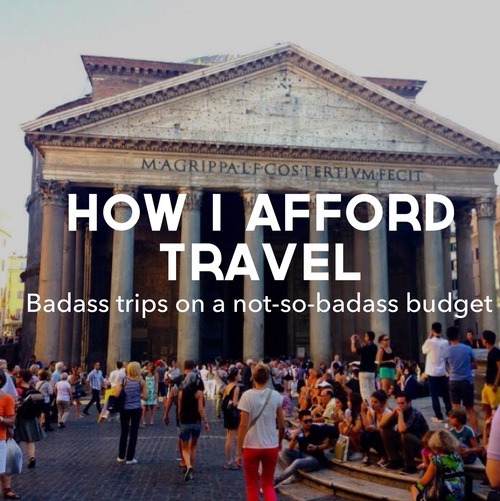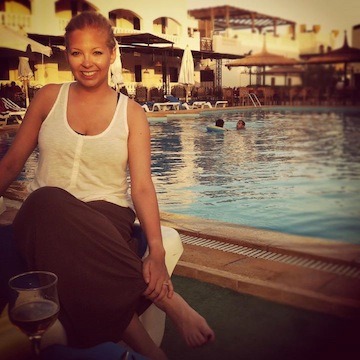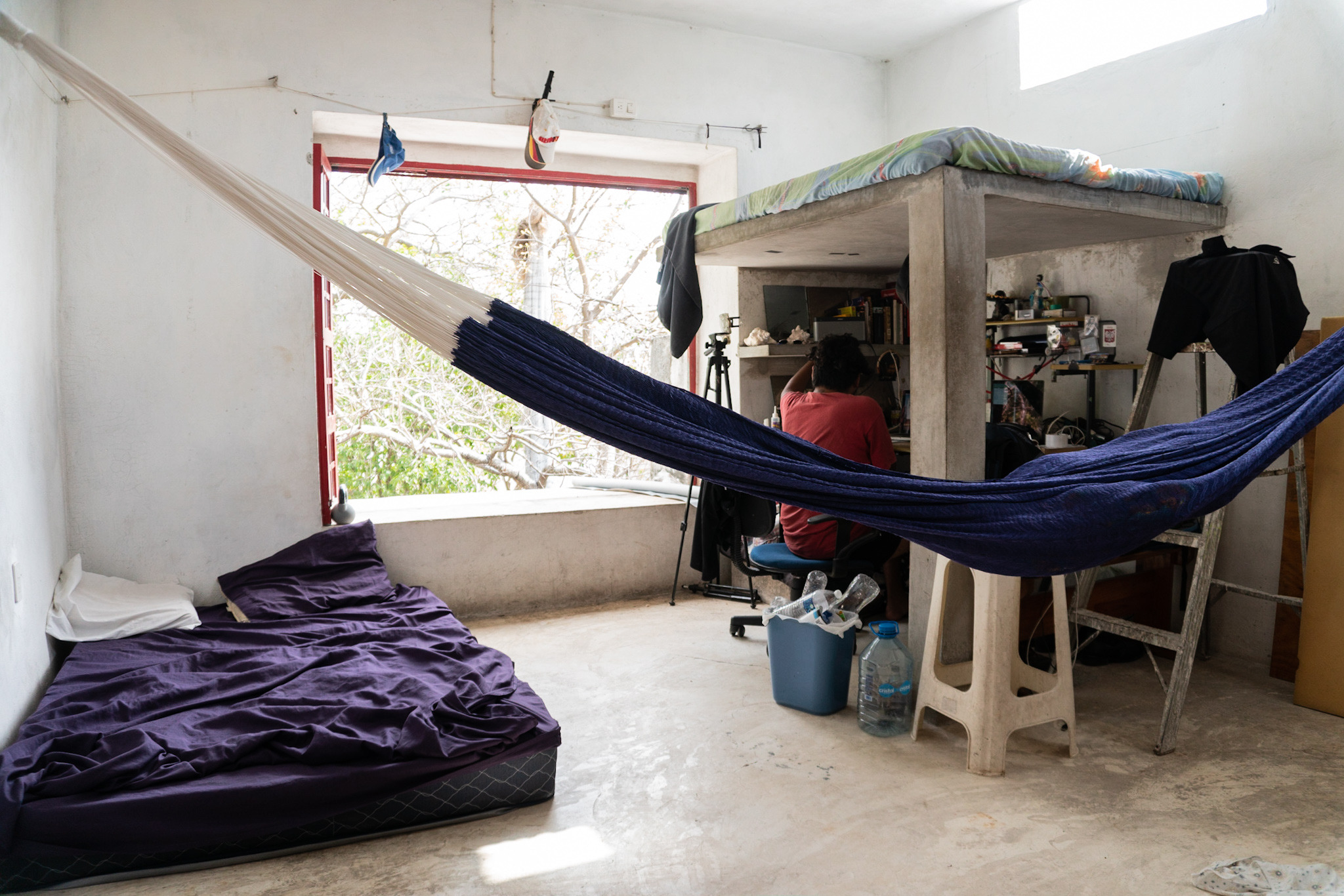#couchsurfing
new spine injury friends after lots of firsts on a beach this weekend!
.
when you meet a complete stranger that you get good vibes with AND she has an awesome scar on her spine too, you call that a soul sister!!!
.
@estela_gp so happy i got to meet you this weekend!
.
.
.
#notimeforparalysis
#ivegotshittodo
#spinalcordinjury
#scirecovery
#paralysissucks
#scarsarebeautiful
#liveyourbestlifenow
#couchsurfing
#incompleteparaplegic
#wheelingtowalking
#thecomebackstory (at Folly Beach)
Post link
When you hear the words South of France your first thought is probably dollar signs on dollar signs. From luxury yachts to wine vineyards, the French Riviera evokes a certain level of opulence with which your wallet is not familiar.

Trust me, I understand. I was discouraged from even trying at first but I had been dying to visit the beautiful Azure Coast and was NOT going to let my pitiful bank account stop me. Where there is a will, there is a financially feasible way. The three biggest expenses within any trip is transportation, housing, and leisure. Even if you have no plans to go to the South of France, this guide will help you budget on any trip.
Transportation
1. Getting There & Back
There’s an app called Rome2Riothat gives you the full play by play on the cost of going from point A to B by plane, trains, and other automobiles. It’s a great starting point. Once you’ve narrowed down your cheapest options, you can buy your tickets right from the site.

At this stage of my life, I value price over convenience. While an hour plane ride sounds lovely, 200 euros does not. I ended up finding a 15 euro Megabus to Marseille. Yes it was a grueling 11 hours…BUT luckily we chose an overnight bus. We left at 10pm and arrived to the beautiful sunny port city at 9am the next day. Not a bad way to wake up.
For the way back, I knew my patience for another 11 hour bus ride would be thin so I decided to spend a little more money on a faster route. I found another online app called KelBillet, where people can sell and buy unused train and bus tickets. It’s a very reliable app where vendors must be verified before posting their tickets to avoid scams. I found a girl desperately trying to sell her originally 70 euro train ticket for half the price. Winning!After traveling all week, a cheap 3 hour high speed train was perfect.
2. Local Transport
So you’re in your travel destination, HOW do you get around without paying crazy expensive taxi fares? No matter what city I travel to, I make use of two very important modes of transportation: the bus and my own damn two feet.
Let’s talk about buses. It’s become increasingly popular to use those Hop On, Hop Off tourist vehicles and while I see the appeal, they are just totally unnecessary. Why spend 40 euros to sight see when you can catch a local bus for 2 euros. It may seem scary but you will see more of the authentic, less touristy parts of town and you will become incredibly familiar with the city.
But the absolute BEST way to travel cheap is to walk. Crazy idea right? Most European cities are very pedestrian friendly. You can spend a day strolling leisurely from one historical monument to the next. You never know what you might stumble upon. A gorgeous field of lavenders, a quaint restaurant that sells regional cuisine, or a hip bar for when happy hour strikes. Walking around a city is the best way to feel within the city. So if you’re physically able and the weather permits, I highly recommend making it your main mode of transportation.
Side tip: I didn’t do this, but bike renting is another very popular option.
3. Short Distance Travel
While our main destination was Marseille, there where other small sea towns we wanted to visit only within an hour distance. We went to Cassis to visit the amazing Calanques (seen below). From Marseille it was very easy. Our hostel told us about a 30-minute shuttle that would take us there for a whopping ONE EURO! If you are ever in the Southeast of France I highly suggest you take the time to see this beautiful treasure.

We visited the ancient city of Arles by using BlaBlacar.This ridesharing app is basically AirBnB for cars. You find someone that is going the same direction as you and you pitch in for gas. Depending on how far you are going, you can pay as little as 5 euros. It’s not only a great, cheap option, but it gives you a chance to converse with locals!
Housing
For the most part, I love using AirBnB. It’s becoming increasingly popular over the past few years and understandably so. Hostels are crowded and hotels lack personality. I always check this website first but if the prices aren’t to my liking then to Hostelworld.com I go. Honestly, I don’t love hostels. Sharing a room with 8 other 20-something strangers makes me feel like I’m at some drunk summer camp for adults. But its crazy affordable. And who knows, you might even meet some buddies to explore the city with. In general, all you need is a place to lay your head comfortably at night. My only requirements are that it has free breakfast and WiFi (:

For the first few days, we stayed in a hostel but as funds were getting low we decided to take a less conventional route: Couchsurfing. If you’re not familiar, couch-surfing is when you stay at another person’s house for free. Yes, you heard me: FREE! How is this possible? What’s the catch?? Well, there isn’t any. There are some people in this world that feed off of being hospitable to strangers for the sake of cultural exchange. And ask for nothing in return but respect, trust, and a positive attitude. (Although, its nice to bring them a little something-something as a token of gratitude).
I’ll be honest, I was VERY skeptical of this option. But here is the personal criteria I follow to ensure a safe experience.
- I prefer to stay with other women my age.
- I only look at verified hosts with fully filled out profiles with at least 20 positive reviews.
- Be skeptical of hosts that are NOT selective of their guests. You don’t want someone that just lets anyone in their home.
Using my personal criteria, I had a very positive couchsurfing experience. Our host was absolutely awesome, overwhelmingly generous, and gave us great advice on how best to spend our time in the city. Of course you can create your own criteria, but only do what is comfortable for you.
Leisure Activities
This could arguably become the most expensive part of your trip but it’s also the one you have the most financial control. For vacation, I always take out cash and refrain from using my debit or credit cards. This allows me to stay in my budget as well as physically keep track of my spending.
1. Food and Drinks
If you follow my advice from housing, breakfast is already taken care of. But for lunch and dinner you have to be careful not to spend 20 euros per meal. Many restaurants in France do lunchtime deals where you can get a lot for a low price. My friend and I took serious advantage of this. Therefore dinner always became grab something small and inexpensive.
For drinks, you can utilize happy hour to the best of your ability but honestly you don’t always need to buy from the bar! It may feel classier to drink un verre du vin at a restaurant overlooking the sea but try just buying a bottle from a supermarket and drink it on the beach with your toes in the sand, watching the sunset over clear blue waves. It’s more memorable that way.
2. Activities
They say the best things in life are free. Depending on the city, this may be easier said than done. But before you travel always look up a list of inexpensive or practically free activities. For larger cities you can use Timeout. But for smaller cities its best to just ask the locals for advice. Locals know best after all.
_______________________________________________________________________
So there you have it. In conclusion, traveling on a budget is more feasible than you realize. All it takes is serious financial control and proper planning. Because of our extreme budgeting, we were able to see this…

and this,

and this,

and this.

Happy Traveling!
Couchsurfing: stay in someone’s home, for free.
- The most common concern I hear about couchsurfing is a legitimate one. You’re staying with a total stranger; how can you trust them? And at the end of the day it is a leap of faith. But if you read the reviews and the personal profile of the host, you can get a much better idea of what you’re going into. Remember that they’re giving a total stranger the keys to their house. At its core, couchsurfing is about faith in other people: that they’re basically good, and interesting, and worth knowing and helping.
- Not going to lie; it’s much harder to find a host as a guy, and you’re going to find a lot of hosts who only accept female guests (with male hosts, this occasionally goes hand in hand with things like ‘by the way I’m a nudist, and in order for me to feel comfortable in my own home you also need to be nude, and by the way I like to snuggle’. Just…close the tab). In general, the people who accept all genders are less sketchy, and I think they’ve got a better sense of the spirit of the thing.
- On the website, ignore whether someone is verified or not; it just means they’re paying a fee every month to the website. What you need to look at are the references – the more and the more positive, the better. Again, look for reviews from people like you (especially if you’re a college girl traveling alone).
- Couchsurfing, like AirBnB, has filters for public rooms and private rooms, as well as smoking/nonsmoking, male or female hosts, and several others.
- It’s polite to bring a small gift to your host. Even a key chain or a post card shows you’re thinking of them. I’ve brought soaps, drawings, and origami in the past. I met a woman whose guest brought her a yellow spoon, which she genuinely cherished several years later. As long as it has a fun story behind it, you can bring just about anything.
- Read both the profile of the potential host and the description of the accommodation, to make sure the location, rules, etc. suit your needs, and that you would get along with the host themselves.
- Personalize your message to potential hosts. The hosts are doing this entirely out of the joy of meeting new travelers and a sense of hospitality. Because it’s not financial, finding a host is based more on whether you, personally, seem like someone they’d enjoy meeting and would trust to visit their home.
- Get in touch with a lot of people. As a general rule, only one in ten will respond, and of those, it’s entirely up to luck whether any of them are free to host you.
- Couchsurfing is a really amazing way to meet locals! I’ve never had a bad experience. Hosts tend to enjoy showing you their city, or if they’re busy, supplying you with the tools to make the most of it on your own.
- It’s expected that you’ll spend at least a little time with your host. Most won’t be able to take much time out of their daily lives to show you around, but it’s polite to spend at least one meal with them. It’s considered rude to treat their house like a hotel, without spending any time with them at all. The whole point of the site is connecting with people.
- Since you’re staying for free, be prepared to help out in some other way. Cook your shared dinner, clean the dishes, buy them a round of drinks, teach them some weird skill you know. Give back.
- A lot of major cities have emergency threads where you can only post within 72 hours of your visit to the city. In case something goes wrong (your hostel burns down, the AirBnB is full of cockroaches, the strange uncle you’re staying with is stubbornly nudist) and you’re facing a night homeless in a foreign city, this is one place to look.
- Fill your own profile out as thoroughly as you can. When it comes does to it, it’s the host who decides if you can stay with them or not, so they need to feel comfortable with you, and vice versa. A profile that gives them a good idea of who you are helps a lot.
- Because of the low rate of replies and accepted guests, message hosts three or four weeks before your trip and have a backup plan.

“Couchsurfing” is a travel trend that has been growing for a number of years now. The idea: instead of booking a hotel or hostel, you travel around the world staying in the homes of other like-minded people, and when you get back, maybe host a few travellers yourself. Cheaper than a hostel or hotel, and you get a personal host and a potential new friend for life.
As the the couchsurfing…
Badass trips on a not-so-badass budget.

Many travel blogs are written by people who’ve sold all their possessions and have taken a huge plunge into the world of long-term travel. This can sound expensive at first, but when you consider that you don’t have rent or a car payment in this lifestyle (or much room to carry any possessions), it can actually be very cheap to live this way, provided you can work a little along the way, or do some kind of virtual freelancing or contract work.
I’m not one of those people.
I do have rent to pay, and a car payment, and bills, and the trappings of a fairly typical middle class young urban professional life. I have a cat. I work in a cubicle. I like some amount of routine, and sleeping in my own bed. I have a ladder to climb, that I want to climb.
I also don’t have a ton of free income to spend on travel.
Despite all this, in the past 2 years I’ve managed to visit 9 cities in 4 countries (Colombia, Jordan, Egypt, Spain) and very soon I’ll be off to visit 7 more cities in 3 countries (Italy, Croatia, and Spain again – I love Spain), a 17 day trip; a few weeks after I return, I’m off again on a small trip to Mexico for a wedding. When I’m done, that’s 16 cities, 7 countries, in just 2 years. Not much for the permanent nomad, but a lot for someone who’s expected to be at work by 8:30am every weekday.
When people find out how much I travel, some imagine I must have a lot of spare income or be a trust fund baby. I keep encountering this perception – especially among Americans – that travel is this huge undertaking that is incredibly expensive. Well, it sure can be, if you choose to make it that way. But if you step outside this perception, and do some research, you’ll find that it really doesn’t have to be that way. Travel can be affordable, if you plan for it and prioritize it in your life.
Here’s how I do it:
1. Flights. By far, this can be the single most expensive purchase of your trip. A coach round trip ticket from the US to Europe usually runs anywhere from $700-1200 on average, depending on the season. The trick is: don’t buy your ticket with actual money. Buy it with fake money called points or miles. A few years ago, I strategically opened 2 different credit cards (one an AmEx, one a British Airways Visa) with unusually crazy high enrollment bonuses. Within just a few months’ time I went from 0 miles to 50,000 AmEx points (redeemable for airline miles on at least a 1:1 basis) and 100,000 British Airways miles. Keep in mind, BA is part of the OneWorld alliance, so I can book with other airlines using these miles. In just a few months’ time, with 2 credit cards (that didn’t hurt my credit, by the way) I earned enough miles to take 3 international round trip flights – without ever stepping on an airplane. I got the AmEx points simply for opening the card, and I earned the BA miles after spending $2500 in 3 months, which wasn’t that hard for me because I strategically put ALL my expenses on the card for 3 months.
The trick is knowing which cards to open. These cards usually aren’t well advertised, so you’ll have to do your research. A few good resources to get you started:
Upgrade Unlocked by Chris Guillebeau. This is actually the first resource I used to learn more about travel hacking. If you’re a total newb, as I was, this is the best introduction to the world of frequent flyer miles that exists. But it’s not overly simplistic; there are a ton of insider tricks and tools in here that I haven’t even taken advantage of yet. This guide is the reason I earned 150,000 miles without stepping foot on an airplane.
FrugalTravelGuy.com This is a great blog for those interested in staying up to date on the latest frequent flyer news and credit card offers.
FlyerTalk.com This is a forum for the serious hardcore travel hackers – the credit card “churners” who sometimes earn up to 1 million miles a year doing this. FlyerTalk can be intimidating at first if you’re new to all this, so I’d recommend starting from the top and working your way down.
2. Rooms. Very rarely do I stay in what most Americans think of as a “hotel” when I travel abroad. Many travel hackers and frequent business travelers are loyal to a certain brand of hotel, especially those with their own reward points systems, which earn them free stays (and yes, there are credit cards for this too). These can be a great value and I do participate in a few programs like Hilton HHonors for stateside bookings. For my international trips, however, I prefer everyday price flexibility, so I book a variety of inexpensive, off the beaten path accommodation types – and none of them involve splitting a room with strangers, camping (not counting the bedouin camp I stayed with in Petra, which I did for the experience and not the savings), or couchsurfing. A lot of people associate budget travel with roughing it, but it is possible to be comfortable. In fact, by avoiding the beaten path, I usually have a less expensive, equally as comfortable, and more interesting cultural experience.
Most of my international trips have involved staying at a combination of private rooms at hostels, small independently owned hotels, bed & breakfasts, and private apartments.
Hostelworld.com This room search and booking site will expand your idea of what a hostel can be. Often you’ll find that smaller, inexpensive and independent hotels will list rooms on Hostelworld even if they have a website and brand themselves as a hotel or bed & breakfast. You can search for rooms nearly anywhere in the world, filter by room type (most hostels have private bedrooms, some with private bathrooms and some with shared bathrooms), location (there’s a handy map view), price and more. It’s also low risk - you just pay a small 10% down payment when you book and the rest when you check in. I’ve stayed in some very nice hostels for a fraction of the cost of an equal quality hotel and it’s one of the first places I look when I start planning a trip.
Booking.com This is a rising star in the online travel booking world for hotels. Based in Amsterdam, they are one of my top sources for rooms in Europe (though they offer rooms in several other parts of the world too). Booking.com’s strength is their breadth of rooms available; you can find a variety of low-cost, tiny, independently owned hotels that will be difficult or impossible to find elsewhere. They even offer free cancellation on many rooms. Their pricing also cannot be beat – sometimes I even find rooms that are less expensive than hostels!
Airbnb.com I am a huge fan of this service. A major disruptor to the online travel booking industry, Airbnb offers you the ability to reserve a room in a private apartment directly through someone who lives and is local to the place you’re going. You can book entire apartments or just spare bedrooms, allowing you the choice between having a cozy place all to yourself or staying with – and getting to know– a local, something that may not have happened otherwise (and my most memorable trips have been those in which I connected with locals while I was there). A few other perks can involve more amenities than a budget hostel or hotel may offer, such as the ability to wash your own laundry or cook your own food if you need to (it is an apartment, after all). I travel for 2 weeks at a time when possible (more on that later), and I pack only a carry-on. After a week like that, a washing machine is an unexpectedly welcome blessing. You’ll also get to feel more like a local, even if you never meet your host. You’re staying in a neighborhood, not a commercial, touristy zone. There’s a lot to be said for that. Finally, I love their website. Not only very easy to use and socially integrated, the design is beautiful. I love flipping through the home slideshow of gorgeous apartments on offer. It’s interior design porn at its most authentic – these are real peoples’ homes!
3. Timing and trip length. I would be remiss to say that the above 2 factors are the only methods I use to travel to so many places affordably. The fact is, I can say I fit in 16 cities and 7 countries in 2 years because of how many of those cities and countries I manage to pack into a single trip. In 2011, I did only a 1-week trip to Colombia. In 2012, I did a 17-day trip to Jordan, Egypt, and Spain. This year, I’ll do another 17-day trip (that’s essentially 12 vacation days) to Italy, Croatia, and Spain. Considering all the places within those countries I travel to in each trip, I typically pack up and move on every 2-3 days. That’s not a lot of time in each place! Just enough to visit the major sites, take in the atmosphere, and decide if I’m intrigued enough to return someday to make a longer trip of it.
This pace is not for everyone, but it works for me. I’m restless, and like squeezing every drop out of my precious vacation days. Plus, nothing’s worse than booking 5 days in a place you’ve never been, only to arrive and find out you’re bored after 1 day and it’s too late to make any changes. I intend to see the world, and I have to do it in 2 weeks per year. So, I compromise. It can be a little tiring, but I don’t take these trips necessarily to relax – I take them to recharge in other ways. Travel is my passion and I crave new cultural experiences. My worldview has expanded a little more each time I set foot on US soil again; this is creative fuel to the fire of everything I do, from painting to marketing strategy. That’s why I’m determined to prioritize it, even with a limited budget. For those who’ve also been bitten by the travel bug, you get it. The rest of the world will go on thinking that we’re rich, and I suppose that’s fine.
–
UPDATE: Wow, this is officially my most popular blog post ever! Thank you all for reading and sharing with your friends. I received a ton of follow-up questions about specific credit cards and mileage reward programs, and I did my best to answer them in a new article, “How I Fly Around the World for Next to Nothing.” Check it out!
–
New here? Let me come to you!Subscribe by email to get more articles like these (plus some extra fun stuff) delivered straight to your inbox: http://travelpaintrepeat.com/subscribe

At the Hotel Oriental Rivoli in Sharm el Sheikh, Egypt. Somewhat fancy, resort-style digs. About $60/night.
My host in Dresden recommended that I go hiking in the Sächsische Schweiz, this nice region about 40 train-minutes from Dresden. I wasn’t sure, for I had planned to hitchhike to Chemnitz on the same day and I had arranged with my CS host in to arrive there before dinner… but hey it was so worth going! The Bastei bridge was indeed cramped with visitors (Czech and Germans mostly), but still really worth visiting!
(Also hitchhiking was great: waited about 10 minutes and got a straight ride to Chemnitz from a woman and her child Paula - the first time I got a ride with children btw)
(I also found the energy to explore Chemnitz and its modernist architecture in the evening, my muscles were a bit sore after hiking and hitchhiking, but I’m so full of energy when I travel, whereas I’m always tired and lazy when I’m at home, idk)
Post link

Daniel
In Mérida, Mexico
Daniel has been hosting couchsurfers from all around the world for about 10 years. By now he has had approximately 900 guests staying with him in his room in his parents’ house. As a programmer Daniel works mostly from home and since he has guests all the time he is used to not having a lot of privacy. He has been living in this room for the last 20 years and his bed is the hammock. There are plans to do some changes to his living space and Daniel has started some time ago by making another window.












